Gender, myth and capitalism: An academic view of Portal 2
Information Capitalism
The story of Aperture Science is an allegory for post-Fordist information capitalism. As we now find ourselves reeling in the aftermath of the greatest economic meltdown since the Great Depression, an exploration of the development and maturation of the information economy is relevant as these are some of the forces at work in our current milieu. Aperture's shift from industrial production (Aperture Fixtures) to research and development (Aperture Science) in 1947 reflects the cultural and economic transformations prevalent in our society after World War II.
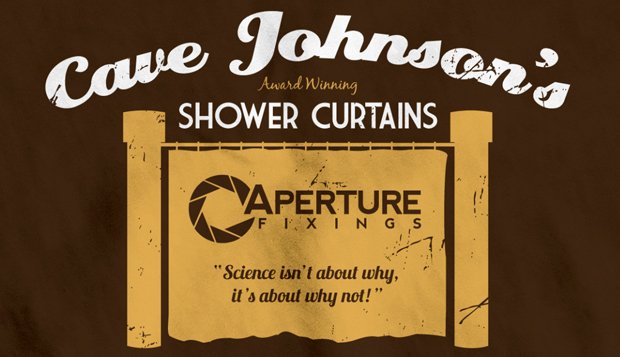
Academics evoke the idea of post-Fordism, a restructuring of production and consumption around information technologies, to describe these changes. In the early part of the 20th century, Russian economist Nikolai Kondratiev theorized that the global economy moved in cycles of roughly 50 years. These came to be known as long waves, or Kondratiev waves (K-waves). Later economists, such as Christopher Freeman (!) and Carlota Perez, modified and expanded on Kondratiev's initial concept by focusing on the ways clusters of technological innovation drive changes in the economy.
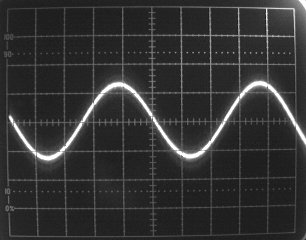
Above: Bow to the all-powerful sine wave
So what does all this have to do with Portal 2? Aperture Science is born out of the techno-economic paradigm shift that launched the information age. As Chell moves through the sealed off parts of the facility, she uncovers the history of the company. As she traverses each era, she sees corresponding changes in the information technology around her, evolving from primitive teletype machines to personal computers. The construction of the test chambers changes too, becoming more refined in each era until industrial design reaches its ultimate manifestation in the “current” area of the facility. Here again, Portal 2 encodes a key concept of post-Fordism, flexible specialization, into the structure of the game. An infinite variety of new chambers can be created almost instantaneously in response to the needs of the situation. Or observe how quickly Wheatley is able to create and deploy his hybrid turret-cubes.
In post-Fordism, flexible specialization is the application of information technology to the production process in order to create more diverse products more quickly. Crucially, it isn't just the equipment that must be adaptable. Workers, too, need diversified skill sets to compete, as the repetitive unskilled labor that was the hallmark of Ford's assembly lines can easily be done by robots.
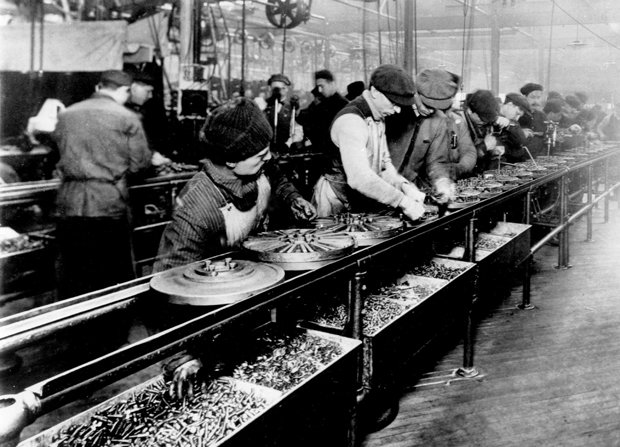
Here we encounter a convergence of post-Fordist ideas. First, the changes to industry brought on by the invention of the semiconductor and their implications for flexible specialization in manufacturing. Second, the rise to primacy of companies who create knowledge or culture through “immaterial labor” rather than durable goods. The cognitive-cultural economy, or information economy, is driven by media, software, design, R&D. In the rise of Aperture Science, we see the perfect example of this shift. Not coincidentally, Valve Corporation shows more than a passing understanding of the information economy and how to manipulate it.
The replacement of unskilled assembly line workers is just the first step. As the information economy produces ever more advanced computer technology, the need for higher-level managers, designers and researchers is reduced, and with sufficiently advanced AI, eliminated. In Aperture's case, robots replaced humans at every level of the company until the remaining humans, even Cave's precious Caroline, were treated simply as livestock and forced into mandatory testing.
Weekly digests, tales from the communities you love, and more
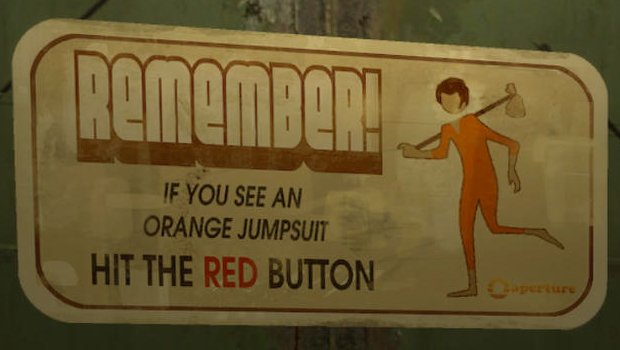
Consider the various test subjects used through Aperture Science's history. Initially, the project attracts the cream of the crop: Olympians, war heroes, and astronauts who have volunteered for testing. There's a sense of exuberance to the endeavor, which is no doubt tied to the recent triumph in World War II and an unwavering faith that the ideals of capitalism push us to be our very best. There's an Andrew Ryan-esque feel to Cave Johnson's confident swagger, a need to break free from the constraints of mediocrity and common morality in order to push human achievement to new heights. But like Ryan's Rapture, Aperture Science is destined to be devoured by its own ideology.
The early days at Aperture Science correspond to the inception of the knowledge economy and the upswing of the k-wave, with new breakthroughs quickly reincorporated to accelerate progress. But valuable volunteers are quickly used up as creative destruction annihilates the old order. The idea of creative destruction in economics was first posited by Marx, but re-contextualized by Joseph Schumpeter in the early 1940s to describe the process by which entrepreneurship and innovation continually destroy and reshape capitalism. Creative destruction also carries mythological significance, in the form of the Hindu god Shiva. Shiva is often depicted as a many-armed dancer, and is evoked in Aperture's motivational poster showing a robot working so fast it appears to have multiple arms. Shiva’s sublime paradox of creation and destruction brings to mind the paradoxes that were supposed to help human workers shut down rogue AI in the event they seize control of the facility.
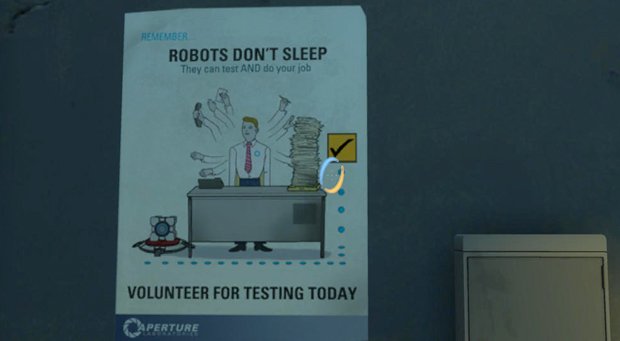
Above: Watch me annihilate this stack of paperwork – BOOYAH!
But back to test subjects. In desperation, Aperture began recruiting from the underclass – hobos, derelicts, anyone hopeless enough to risk certain death for $60. During this era, Cave's recordings reveal his utter disdain for the people he's testing on. The high-mindedness of the early days is gone. The unrelenting need to continue testing (i.e., remain competitive with Black Mesa) sets in. Test subjects are exposed to asbestos, microwaves, even lasers that turn their blood into gasoline, with full knowledge that the result will be cancers, tumors, or instant death. For all Cave's lofty ideals about human betterment, the cold logic of accumulation reduces life to a mere commodity to be consumed in the relentless pursuit of wealth. Science is wealth, because knowledge is capital in the new economy.
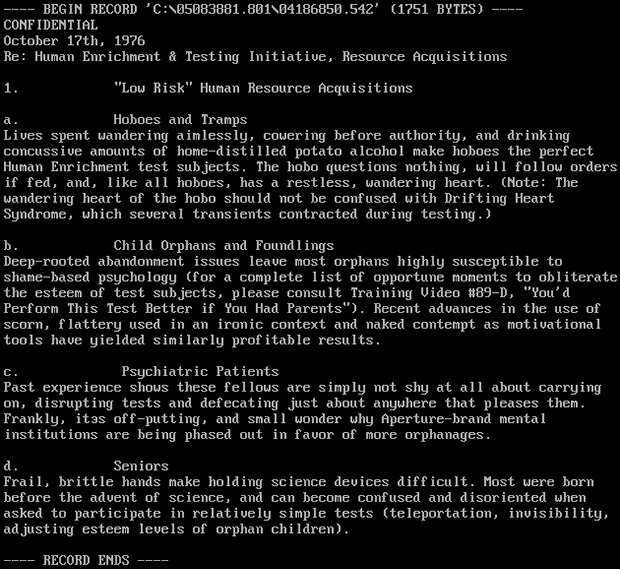
Above: An image revealed during Portal 2's pre-launch ARG
Even as he throws the lives of countless orphans and transients away in pursuit of Science, Cave's recordings are hilarious – we respond to them because of their exaggerated bombast, but also for their insight into the modern condition. Cave, at least, has the guts to say exactly what he thinks.
Another poster tucked away in an office reveals a prison mentality setting in at Aperture around this time, as the test subjects are forced to continue participating against their will. When robotics and AI become advanced enough to take over most of the operation of the Enrichment Center, the bulk of Aperture's human workers are forced into testing as well. But even Aperture's sentient robots are treated with the same disposable attitude, the Turret Redemption Line awaiting any turret who no longer furthers the cause of Science.
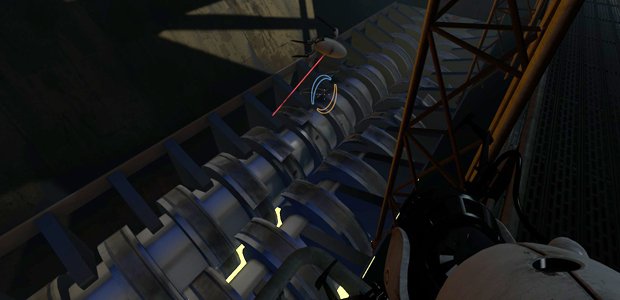
Above: The gears of capitalism are oiled with the oil of sentry turrets
Perhaps the creepiest but most insightful part of the Redemption Line is the very end, where the machines are cast screaming into a giant grinder. Wheatley reveals that they are sentient and feel pain, an acknowledgement that he and GLaDOS take a certain masochistic delight in their suffering. After all, they designed the system and could have just as easily made the turrets' demise painless. Again Portal 2's subtext reveals that capitalism, whether industrial or information based, is inescapably rooted in exploitation and suffering.
Virtual goodness?
The communication and cultural studies book “Digital Play” (Kline, Dyer-Witherford, de Peuter; 2003) makes the case that video games are the ideal post-Fordist commodity because they so perfectly embody the technological, economic and cultural dynamics of information capital. The global explosion in the virtual goods economy reinforces this idea. Valve proved without a doubt that they were ahead of the curve when they launched Steam in 2003, and are now tinkering with another method of magically turning bits into dollars.
Enter Portal 2's Robot Enrichment center, in which players can buy little hats for their co-op avatars. The virtual goods for sale are purely superficial and don't affect gameplay, and the great thing about selling little graphics is that they're really cheap to make and distribute. The markup is immense, so you don't even have to sell very many units to make it a worthwhile experiment.
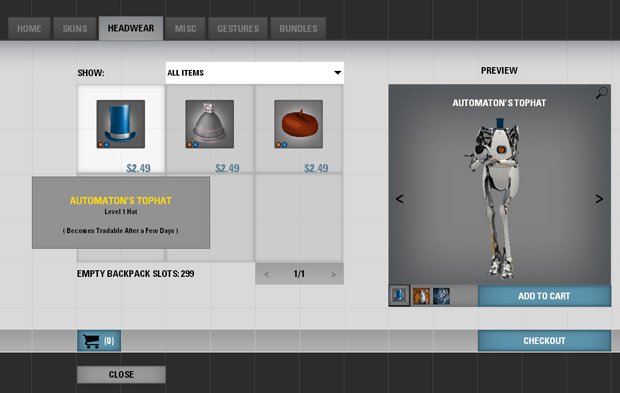
Above: These are worth exactly what people will pay for them
Valve has already made a fortune by spearheading the digital distribution of games, and will almost certainly turn big profits with their virtual goods store, just as others adept at manipulating the knowledge economy already have. But is the buying and selling immaterial objects the way out of the economic crisis? Is this a stable enough foundation upon which to build a recovery? Economists have suggested that the “bubble economies” of the last 20 years have masked a much more insidious trend that has been laid bare in the recent financial meltdown. The perpetual innovations brought on by the information economy are accelerating the accumulation of wealth for a tiny minority while the middle class is being systematically wiped out.
So what do we, as digital citizens in the information society have to look forward to? For most, dispossession and servitude like all those poor souls stuffed into freezers at the Enrichment Center (i.e., work in the Service Sector.) And for a lucky few, unimaginable riches and power. But it's also a cautionary tale – if we're not careful, we'll innovate ourselves right out of existence and Aperture's fate will be ours. Part of avoiding that catastrophe is understanding the true structure of the information economy, the length and breadth of our participation in it, and developing strategies to avoid dispossession by the ever-ravenous machinery of capitalism. Like not pissing money away on hats for robots, for example.
Don't get me wrong, Portal 2 is an amazing game with a fantastic story, and Valve duly deserves to be rewarded for producing it. But we also need to apply some critical thought to the shape of the information economy and its latest scheme, virtual goods. We should take a good look at what we're giving up and what we're getting in return, to make sure we understand the consequences.
May 25, 2011

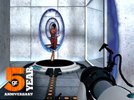
This modern masterpiece shakes the FPS genre to the very core

Portal 2 Easter egg guide: 30 secrets and references you may have missed
Have you seen everything Aperture Science has to offer?

VIDEO: Portal 2’s leading lady takes over our favorite films and TV shows


